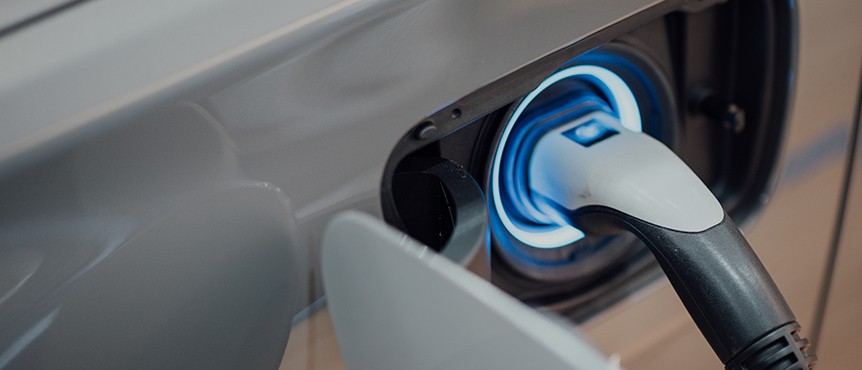“The low carbon economy will likely require US$50 trillion of investment over the next three decades, making it the biggest purchase order in history.”
RELATED PUBLICATION
Driving Change: The responsible sourcing of cobalt and other key materials for the EV industry

Image courtesy of Chuttersnap on Unsplash
Expert Opinion Article by Benedikt Sobotka, CEO of Eurasian Resources Group and co-chair of the Global Battery Alliance
The latest installment of the UN’s landmark IPCC report, published in February 2022 and signed by 270 scientists, concludes that the world has a “brief and rapidly closing window” to respond to climate change. The 2015 Paris Agreement set the goal of keeping the rise in mean global temperatures to well below 2 degrees centigrade. Seven years later, it is clear we need to take far more urgent action if we are going to reach this target.
The battery value chain is one of the major and immediate drivers to realise the Paris Agreement goals in the transport and power sectors. Research from the Global Battery Alliance and McKinsey indicates that as a clean energy power source batteries can enable 30% of the required reductions of carbon emissions in the transport and power sectors, and the EU Commission has named batteries as the fastest growing storage technology.
At the heart of the battery supply chain is the production of cobalt, a key metal in the lithium-ion batteries used in electric vehicles, smart phones and other electronic devices. Electric vehicle sales more than doubled between 2020-2021 to reach 6.6 million vehicles, which, in turn, led the price of cobalt to surge by 120%. In some of the key markets, we believe the share of EVs in new car sales may exceed 50% by 2030, above most analysts’ expectations of 30%. The Democratic Republic of the Congo (DRC), where the majority of the world’s cobalt is currently produced, is well-positioned to benefit from this – but only if the metal can be extracted sustainably.
Estimates suggest that as many as 1 million children are involved in the DRC’s mining industry, and dangerous working conditions are still commonplace in artisanal and small scale mining (ASM). It is vital that the switch to the green economy does not come at the expense of some of the world’s most vulnerable communities.
Public and private organisations need to work together in a way that strengthens the transparency of battery materials across the value chain. Capital must be directed to solutions that are not only green, but also socially sustainable. This means establishing harmonised principles for digital traceability, access and transparency so as to hold companies and nations to account and guarantees for consumers that the batteries in their EVs and smart devices have been responsible sourced.
Traditionally, it has been difficult to track cobalt continuously from the mine to the EV. This presents significant obstacles to being able to assess the sustainability of the cobalt used in these EVs: How much carbon was emitted during extraction? What were the safety standards of the mine it came from? Were children involved with the mining?
To solve these issues, Eurasian Resources Group (ERG) has co-founded two multi-stakeholder initiatives. One of these is the Global Battery Alliance (GBA), whose 90+ members include NGOs, industry actors, academics and policy makers, such as Microsoft, BASF, the World Economic Forum and others. The GBA is in the process of developing the ‘Battery Passport’, a digital representation of a battery that conveys information about all applicable ESG and lifecycle requirements based on a comprehensive definition of a sustainable battery. At the core of this definition is full transparency on a battery’s provenance, ensuring the materials and production processes have been ethical and sustainable. The concept of a battery passport has already been endorsed during global policy discussions, such as at the 2021 G7 Leaders’ Meeting and the draft EU Directive on Batteries, and our hope is that it will become the standard benchmark for all batteries worldwide.
ERG has also helped launch Re|Source, a blockchain solution developed with CMOC, Glencore, Tesla, Umicore and others for end-to-end traceability. The goal of Re|Source is to trace responsibly sourced cobalt and other battery metals in real operating conditions from the mine to the electric vehicle. The solution is set to be rolled out this year, enabling companies in the supply chain to account for every unit of the material.
Solutions like these are the reason why major strides have been taken in the responsible sourcing of key materials like cobalt. However, there is still a lot of work to be done. The low carbon economy will likely require US$50 trillion of investment over the next three decades with the IEA predicting that mineral requirements will need to be quadrupled to create clean energy technologies and meet the Paris Agreement goals by 2040, making it the biggest purchase order in history.

Expert opinion article by Benedikt Sobotka, CEO of Eurasian Resources Group and co-chair of the Global Battery Alliance












